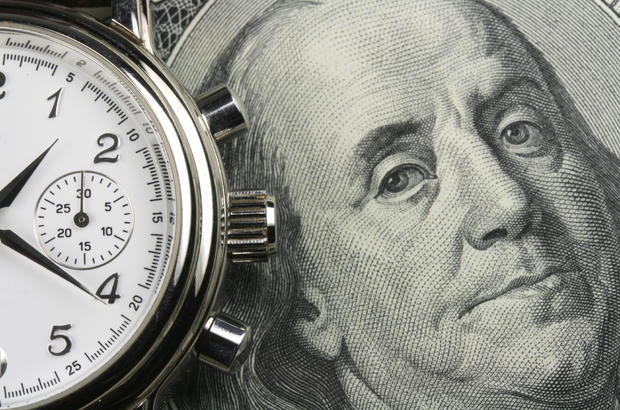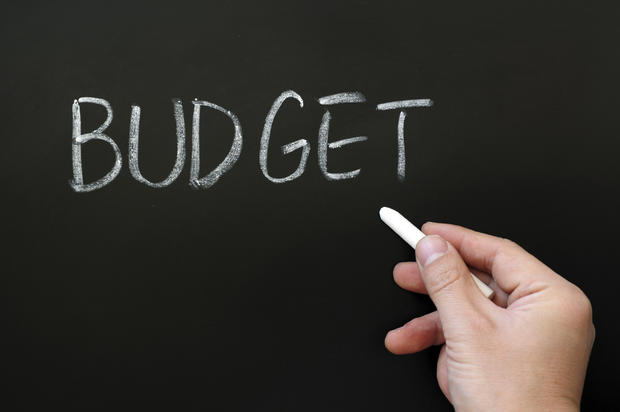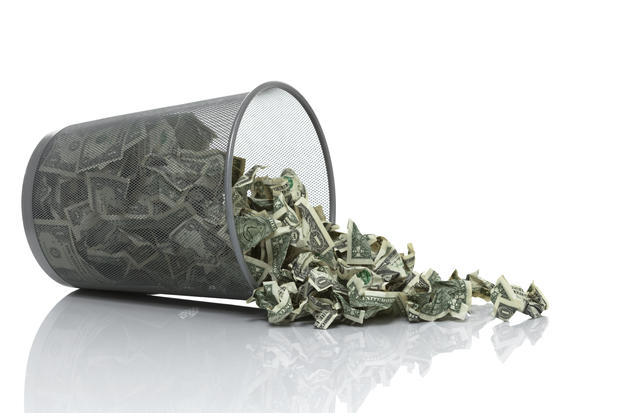7 ways your attempts to save money can backfire
By Cameron Huddleston/GOBankingRates
You're doing your best to spend less and save more -- at least, you think so. You try to be smart with your purchases, live frugally and put money into savings each month.
But what if all the effort you're putting into cutting costs and trying to set aside cash for the future isn't paying off the way you hoped?
Here are seven ways your attempts to save money could be backfiring.
This article, 7 ways your attempts to save money can backfire, was originally published on GOBankingRates.com.
More from GOBankingRates:
You spend too much time trying to find the best deal
When my family was planning a trip to the beach this summer, my husband spent weeks searching for the best deal on a vacation rental property. However, every time he found a condo or beach house that fit our needs and was reasonably priced, he continued to look for an even better bargain instead of making the purchase. In the meantime, the most affordable properties were being booked by other buyers. We ended up paying a few hundred dollars more for a place that wasn't as desirable as the cheaper, better ones located earlier in the search.
Of course, it's always smart to compare prices when making a purchase. But sometimes spending too much time trying to find the best deal will cause you to miss out on a pretty good one. Further, many consumers become so focused on deal-hunting that they lose revenue they could have earned working.
"Time is worth something, too," said J.D. Roth, a personal finance expert who created the site MoneyBoss.com to help people manage their money in the way they would a business. In some cases, consumers can save more by stopping their deal searches and turning their efforts to other endeavors.
You focus on small -- rather than big -- ways to save
If you're pinching pennies rather than making significant changes to your budget, your plans to save money might fail. Bill Van Sant, a certified financial planner and senior vice president of Univest Investments, said that when he meets with new clients, they often talk about how they're trying to cut out small expenses to get spending under control. What people need to focus on, though, are ways to lower their big expenses, which can net greater savings in the future.
Start by looking at the big-picture items in your budget. According to Van Sant, individuals could save several hundred dollars a year simply by re-shopping their auto or homeowner's insurance plans to get better rates. Or, if you've built up equity in your home, you might be able to refinance your mortgage and pay significantly less each month.
Personal finance blogger J. Money of Budgets Are Sexy echoed this advice, revealing that he saved more than $2,400 in a year by reviewing his major monthly bills and finding ways to lower them. He cut $30 from his monthly auto insurance premium by calling his insurer to ask about ways to lower his rate. Additionally, Money slashed his cell phone bill by $100 a month just by switching to low-cost carrier Republic Wireless. By seeking out more significant savings opportunities, you can reduce your monthly expenses without sacrificing those little treats like after-work lattes.
You buy cheap stuff
Consumers often try to save money by purchasing the cheapest options available. According to Roth though, in some cases "the option with the lowest price isn't the option that's cheapest in the long run."
The fact is that cheap items of inferior quality might have to be replaced more often, a fact that could negate any savings potential. You might even find yourself paying more to buy a new product than if you'd purchased the more expensive, high-quality one the first time around.
Go ahead and opt for the cheap item if it's something you won't use often, Roth said. But for products that matter to you, or that will be used frequently, it's typically worth it to pay more for quality. Just don't use this advice as an excuse to buy the most expensive option; when in doubt, purchase the product you can afford over the one you can't.
You buy things because they’re on sale
Just because a product is on sale doesn't mean you should use your hard-earned cash to purchase it. According to J. Money, "A lot of people will pick up something just because it's on sale -- even if they don't actually need it." No matter how good of a price you get, you aren't saving money if you're buying something you don't need or won't use.
To avoid spending money on unnecessary items, make a habit of asking yourself if you'd be willing to purchase them at full price. Doing this can help you determine whether you're attracted to the product or just the sale price. It's also wise to unsubscribe from email alerts for daily deal sites and retailers to avoid the temptation to buy discounted goods or services you don't really need.
You waste money trying to save money
People often think that they're saving money by filling up at the cheapest gas station -- even if they have to drive miles out of their way. But they're not taking into account that they've used gas to get there, a fact that likely eliminates their savings, Roth said. The same is true for driving to several out-of-the-way supermarkets to take advantage of various sales or discounts.
Similarly, consumers should be wary of shopping at warehouse clubs and buying bulk food in an attempt to save. If the items you're purchasing can be frozen or have a long shelf life, you might be saving money per unit. But if you're buying large amounts of perishable food that goes bad before you can eat it, you might as well be throwing your cash away.
You don’t set aside the money you’ve saved
The fact that you've managed to eliminate a few bills doesn't mean you're saving that money long term. Said Van Sant, "People tend to spend extra cash they think they're saving by cutting things out." Hence, for many consumers, penny-pinching efforts don't result in actual pennies in the bank.
To ensure you're getting the most from your efforts to cut costs, arrange for saved money to be diverted automatically to a savings account, said Van Sant. For example, if you cut your auto insurance by $30 a month, as J. Money did, log onto your checking account to set up a monthly automatic transfer of that amount to an interest-bearing account. You can also boost your monthly 401(k) contribution by that amount. Then you'll actually be saving the money you "saved." The goal is to put the money aside before you're tempted to spend it on other purchases.
You make it too easy to access your savings
Modern technology makes it easy to transfer money from a savings to checking account with the click of a button. Unfortunately, this ability can also hinder consumers' efforts to save. People who save for, say, an emergency or home down payment in a savings account with the same bank where they have their checking account have good intentions, Van Sant said. But, inevitably, something comes up, and they end up using the money they meant to save. "It's so easy to transfer money that it derails the plan," he explained.
To combat this issue, Van Sant recommended that people put their savings in something that's harder to access, such as a money-market account with a brokerage firm. If you have to take an extra step to move your money to checking, you might think twice before doing so. This strategy has helped Van Sant's clients break the bad habit of dipping into their savings.
Even the best-laid plans to save aren't always successful. Avoid these missteps to ensure your efforts to cut costs and save money aren't for naught.







